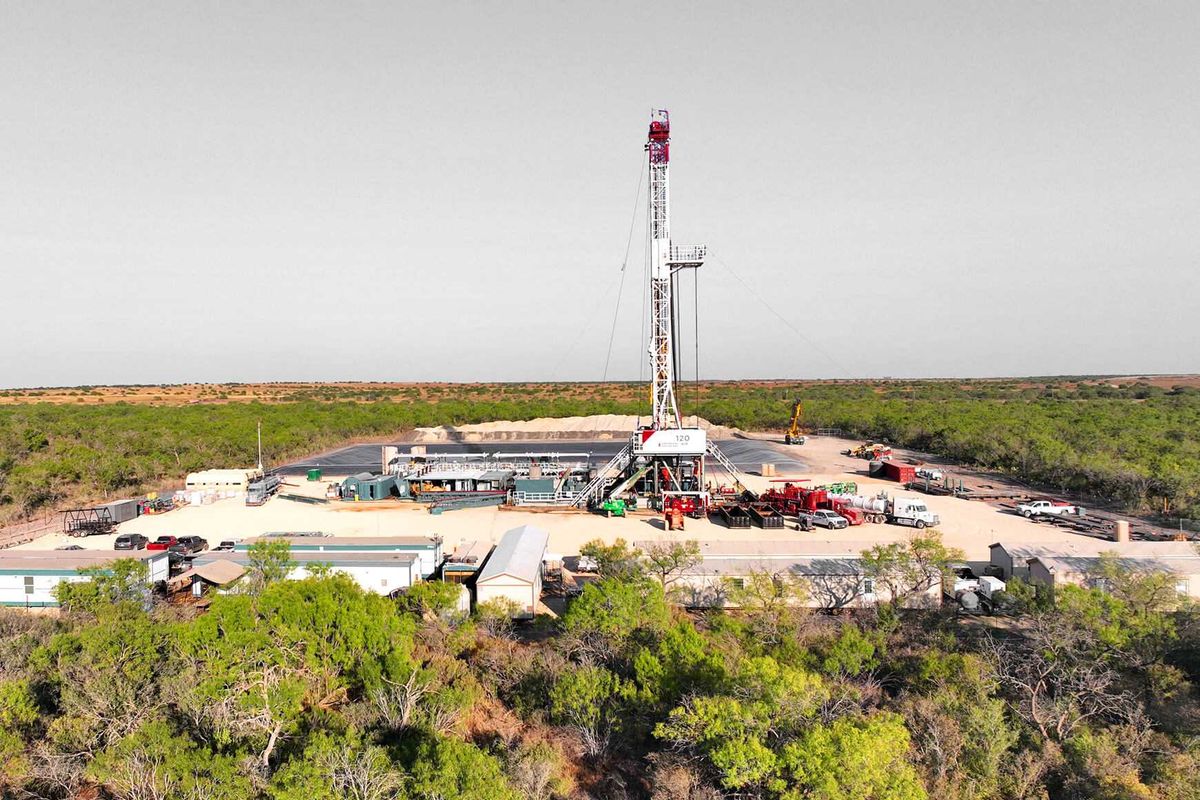Houston faces critical inflection point amid energy transition, says expert
guest column
In 1914, Winston Churchill faced a difficult decision. Over two decades before his first term as Prime Minister during World War 2, he oversaw the entire Royal Navy as First Lord of the Admiralty. Shipbuilding technology was rapidly evolving in that era and one of the key questions was whether to use coal or oil as fuel for the large ships in the fleet. Coal was the more proven technology at that point and the British had a strong supply chain across the Empire. Oil was lighter and easier to operate, but the worldwide supply and infrastructure were still limited.
Ultimately Churchill was persuaded by Admiral Jacky Fisher and others to convert the entire fleet to oil. To resolve the supply chain issue, the British government bought a majority stake in Anglo-Persian Oil Company, which became BP. The Royal Navy was possibly the largest consumer of fuel worldwide at the time, so this decision had a major effect on the energy transition in that era. Within 30 years, steam engines were no longer used for transportation in most of the world.
In that same decade, Houston emerged as a leading energy hub in the United States: Humble Oil was founded, the Houston Ship Channel was dredged, and the Baytown Refinery was constructed. World War I in Europe, and the mass adoption of cars in the US spurred a major increase in demand for oil. Oil went on to dominate the global energy market, providing cheap and reliable transportation, industrial production, and materials. Houston grew and prospered along with it to become the 5th largest metro area in the country today.
Over a century later, the global energy industry may be at a similar inflection point. According to IEA, the electric vehicle market more than tripled from 4 percent in 2020 to 9 percent in 2021 to 14 percent in 2022. Major automakers like GM, Ford, Volkswagen, Mercedes, and Volvo have pledged to become all-electric by early-to-mid 2030s. Similar commitments are being made in commercial trucking and shipping.
At the same time, the electric power grids in the United States and many other nations are undergoing a rapid shift to renewable energy. Lazard’s annual Levelized Cost of Energy (LCOE) report showed that by 2015, wind and utility-scale solar power in the US were cheaper than all other technologies on a $/MWh basis; the gap has only grown wider since. EIA data on new power generation capacity in the US for 2020-2023 shows that solar, wind, and energy storage combined have ranged from 74 percent to 81 percent while natural gas has ranged from 14 percent to 22 percent and other fuels less than 5 percent.
All of these figures show market trends that are already happening, not projections of what may happen if the technologies improve. This leads to a natural question: will the growth of EVs and renewable energy reach a limit and tail off? Or will this trend continue until the internal combustion engine and fossil fuel power are replaced like steam engines were before? Both EVs and renewable energy are experiencing insatiable market demand in developed markets but have hit other barriers such as supply chain and infrastructure. However, just as the oil industry itself demonstrated in the past, those constraints can be overcome if the push is strong enough.
The year 2035, only 12 years away, is a major deadline for the transition. The US government and the EU have both set it as a target to complete the transition to EVs. In the US electric power industry, BloombergNEF projects that 126 GW of US coal power will retire before then. S&P also forecasts 85 GW of new energy storage will be online, which will help resolve intermittency and transmission issues that have limited the role of renewable energy up to now. That paints a picture of a radically different energy industry from the one we see today; one with oil demand at a fraction of its current levels and natural gas demand in rapid decline as well.
These market trends have drawn a variety of responses in Houston and other energy hubs, ranging from enthusiastic adoption to cautious skepticism to firm denial. Two recent examples of this range are BP CEO Bernard Looney advocating for continued investment in renewable energy and Shell CEO Wael Sawan emphasizing a move away from them due to lower returns. Business leaders should always be aware of threats to their long-term operations, regardless of their personal opinions on an issue. While demand for oil generally remains strong, every business in the energy industry should be prepared for the scenario that all new cars sold in a decade are electric. There is a graveyard of companies like Kodak, Sears, and Blockbuster Video that failed to act on an existential market threat until it was too late.
Plans for the transition can look different from company to company, but Houston is full of resources that can help with planning and deployment. The workforce, financial sector, and professional services can adapt to new energy technologies from their existing oil and gas expertise. Industry organizations like the Houston Energy Transition Initiative, Renewable Energy Alliance Houston, and the energy policy centers at Rice University and the University of Houston can help leaders make connections and discuss new technologies.
The burden is on every business leader to make use of the time remaining, not only to make plans for the changes coming in the energy industry, but to implement those plans. The question the Houston business community must be able to answer today is “Are we going to be ready for 2035?”
------
Drew Philpot is president of Blended Power, a renewable energy consulting practice based in Houston.










